#especially my wives
Explore tagged Tumblr posts
Text

#architecture#cathedral architecture#class time doodles#dear god I'm so bored#my teacher's prattling on about ps#and eveything we did last year#as review#I won't make it#someone tell my family I love them#especially my wives#my many wives#they are precious
1 note
·
View note
Text
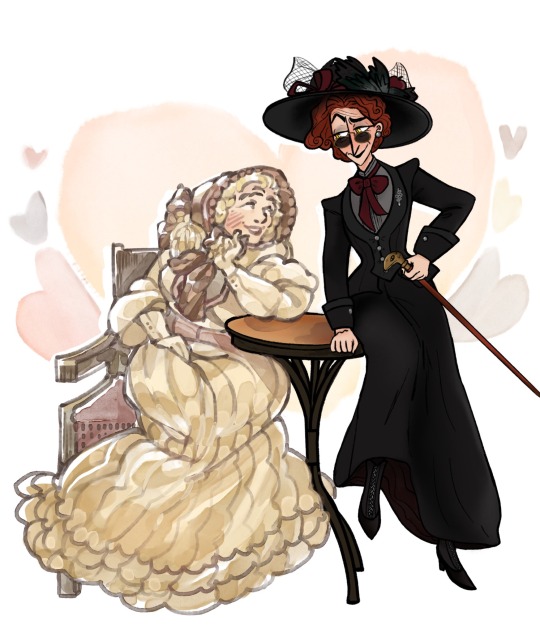
Ineffable wives collab with @t-nartin! 🐍🍎🕊️ It was great fun to see how our art styles work together🤩
(pose inspo✌️😗)
#thank you again for collabing with meee 🤩#hope we can do more art together at some point#I think it tuned out great! especially cuz our styles are so different and kinda fit with the aesthetics of each character 🤓🎨#soft lines and colors for Aziraphale#and harsh lines and colors for Crowley#just a coupe of gals👯♀️#they are in love 🤭#and I love the background she did 🥰#good omens#crowley#aziraphale#ineffable spouses#my fanart#aziracrow#ineffable husbands#fem!crowley#fem!aziraphale#other people’s art#ineffeble wives
1K notes
·
View notes
Text
A central element of the myth of [Eleanor of Aquitaine] is that of her exceptionalism. Historians and Eleanor biographers have tended to take literally Richard of Devizes’s conventional panegyric of her as ‘an incomparable woman’ [and] a woman out of her time. […] Amazement at Eleanor’s power and independence is born from a presentism that assumes generally that the Middle Ages were a backward age, and specifically that medieval women were all downtrodden and marginalized. Eleanor’s career can, from such a perspective, only be explained by assuming that she was an exception who rose by sheer force of personality above the restrictions placed upon twelfth-century women.
-Michael R. Evans, Inventing Eleanor: The Medieval and Post-Medieval Image of Eleanor of Aquitaine
"...The idea of Eleanor’s exceptionalism rests on an assumption that women of her age were powerless. On the contrary, in Western Europe before the twelfth century there were ‘no really effective barriers to the capacity of women to exercise power; they appear as military leaders, judges, castellans, controllers of property’. […] In an important article published in 1992, Jane Martindale sought to locate Eleanor in context, stripping away much of the conjecture that had grown up around her, and returning to primary sources, including her charters. Martindale also demonstrated how Eleanor was not out of the ordinary for a twelfth-century queen either in the extent of her power or in the criticisms levelled against her.
If we look at Eleanor’s predecessors as Anglo-Norman queens of England, we find many examples of women wielding political power. Matilda of Flanders (wife of William the Conqueror) acted as regent in Normandy during his frequent absences in England following the Conquest, and [the first wife of Henry I, Matilda of Scotland, played some role in governing England during her husband's absences], while during the civil war of Stephen’s reign Matilda of Boulogne led the fight for a time on behalf of her royal husband, who had been captured by the forces of the empress. And if we wish to seek a rebel woman, we need look no further than Juliana, illegitimate daughter of Henry I, who attempted to assassinate him with a crossbow, or Adèle of Champagne, the third wife of Louis VII, who ‘[a]t the moment when Henry II held Eleanor of Aquitaine in jail for her revolt … led a revolt with her brothers against her son, Philip II'.
Eleanor is, therefore, less the exception than the rule – albeit an extreme example of that rule. This can be illustrated by comparing her with a twelfth century woman who has attracted less literary and historical attention. Adela of Blois died in 1137, the year of Eleanor’s marriage to Louis VII. […] The chronicle and charter evidence reveals Adela to have ‘legitimately exercised the powers of comital lordship’ in the domains of Blois-Champagne, both in consort with her husband and alone during his absence on crusade and after his death. […] There was, however, nothing atypical about the nature of Adela’s power. In the words of her biographer Kimberley LoPrete, ‘while the extent of Adela’s powers and the political impact of her actions were exceptional for a woman of her day (and indeed for most men), the sources of her powers and the activities she engaged in were not fundamentally different from those of other women of lordly rank’. These words could equally apply to Eleanor; the extent of her power, as heiress to the richest lordship in France, wife of two kings and mother of two or three more, was remarkable, but the nature of her power was not exceptional. Other noble or royal women governed, arranged marriages and alliances, and were patrons of the church. Eleanor represents one end of a continuum, not an isolated outlier."
#It had to be said!#eleanor of aquitaine#historicwomendaily#angevins#my post#12th century#gender tag#adela of blois#I think Eleanor's prominent role as dowager queen during her sons' reigns may have contributed to her image of exceptionalism#Especially since she ended up overshadowing both her sons' wives (Berengaria of Navarre and Isabella of Angouleme)#But once again if we examine Eleanor in the context of her predecessors and contemporaries there was nothing exceptional about her role#Anglo-Saxon consorts before the Norman Conquest (Eadgifu; Aelfthryth; Emma of Normandy) were very prominent during their sons' reigns#Post-Norman queens were initially never kings' mothers because of the circumstances (Matilda of Flanders; Edith-Matilda; and#Matilda of Boulogne all predeceased their husbands; Adeliza of Louvain never had any royal children)#But Eleanor's mother-in-law Empress Matilda was very powerful and acted as regent of Normandy during Henry I's reign#Which was a particularly important precedent because Matilda's son - like Eleanor's sons after him - was an *adult* when he became King.#and in France Louis VII's mother Adelaide of Maurienne was certainly very powerful and prominent during Eleanor's own queenship#Eleanor's daughter Joan's mother-in-law Margaret of Navarre had also been a very powerful regent of Sicily#(etc etc)#So yeah - in itself I don't think Eleanor's central role during her own sons' reigns is particularly surprising or 'exceptional'#Its impact may have been but her role in itself was more or less the norm
395 notes
·
View notes
Text
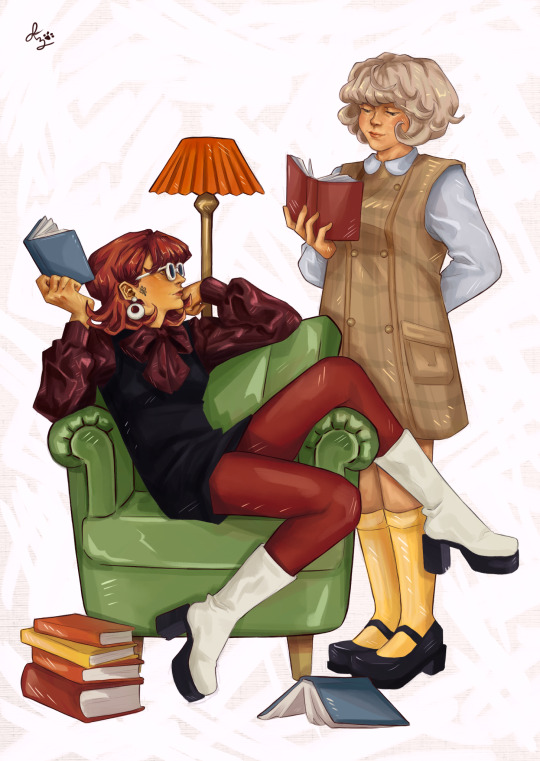
fem aziracrow in the 60’!
the second part of me experimenting with leyendecker’s artstyle
#crowley is a fashion icon#her outfit is my pride and joy#especially the slutty boots#good omens season 2#good omens fanart#good omens#good omens s2#aziracrow#aziracrow fanart#fem aziracrow#inneffable husbands#inneffable wives#fem aziraphale#fem crowley#crowley#aziraphale#art#my art#digital art#clip studio paint#inspired by leyendercker art#jc leyendecker#leyendecker study#60s#60’s aziracrow
685 notes
·
View notes
Text
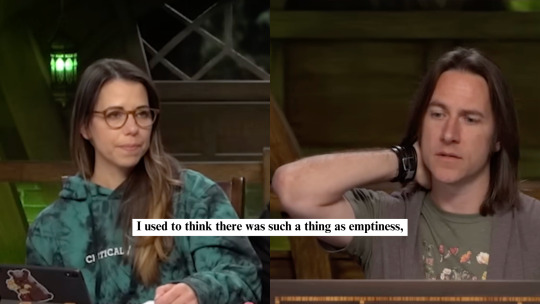






















Most things we believe will turn out to be ridiculous in the end. (or, the temults x our wives under the sea)
Campaign 3 of Critical Role (eps. 1, 3-4, 11, 19, 29, 33, 39, 48-49, 83, 89, 91, 102) // Our Wives Under the Sea by Julia Armfield (pgs. 4, 48-49, 151, 188)
#here's hoping the screenshots i did not include captions on are as recognizable moments as I think they are#constantly having quotes or lyrics or poems that rot my cr brain versus it just being a bunch of people sitting at a table#anyway if u r a relvin freak or an imogen freak but Especially if you are both. read our wives under the sea#imogen temult#liliana temult#relvin temult#the temults#critical role campaign 3#critical role#our wives under the sea#julia armfield#cr3#laura bailey#matthew mercer#my post#web weaving#web weave
160 notes
·
View notes
Text
All I want for Christmas‼️‼️

#juju watkins#judea watkins#paige bueckers#flaujae#janiah barker#uconn wbb#usc trojans#ucla wbb#lsu wbb#usc wbb#my wives#happy Christmas eve#merry christmas#wcbb#ayanna patterson#especially juju#hooping with juju#wlw#juju my love#lesbian
93 notes
·
View notes
Text
Anybody order some sibling angst with a side of crane wives? :)

lyrics are from the song “Icarus”
#my art#tsams#sun and moon show#tsams eclipse#tsams lunar#damn do I love angst#especially when paired with crane wives lyrics hehehe
195 notes
·
View notes
Text
Male patients who will literally call their wives to verify things like their med list grate on my nerves SO much……. Are we 12
#“Idk what that’s for….. let me ask my wife” and then they whip out their phones and call her mid appointment#And I think they especially do it w me bc they can see I’m a 22 yr old girl and they don’t gaf ab my opinion#But if it was someone else who’s older#and literally all of my coworkers are either in their 30s or up#Then they’d probably feel too judged to do it#It’s giving my wife is my mommy and my life would be in shambles without her#I’ve been trying not to hate men lately but this is embarrassing#I usually love every patient I interact with but the occasional men who don’t know why they’re taking what they’re taking#Or wtf they’re even taking#And then turn to their wives or interrupt me to call them#Are just?????? So peculiar#I also think they think I find it cute but it is so uncomfortable for me to see this#Like why would I find it cute that ur wife is ur mom. I don’t want this to be my future and it literally never will be#Like I’m being dramatic but at the same time it’s a bit of an ick 😍
110 notes
·
View notes
Text
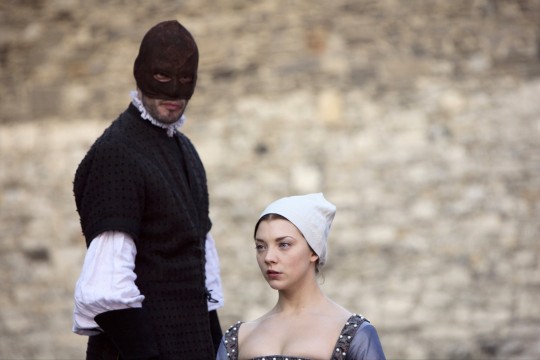
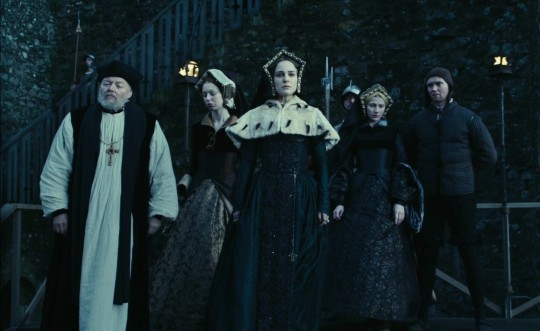
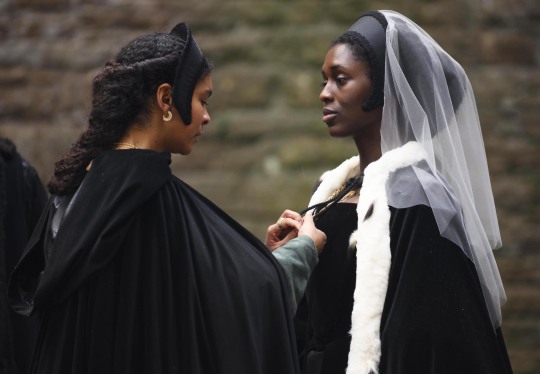
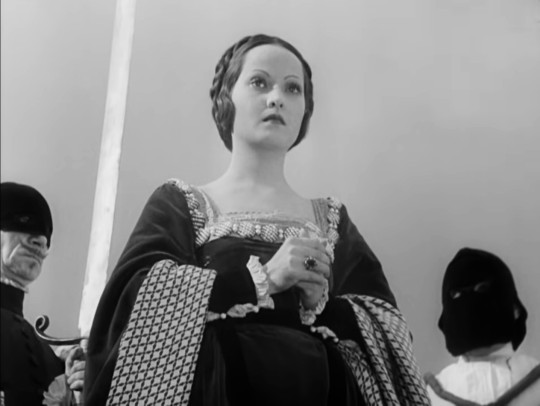
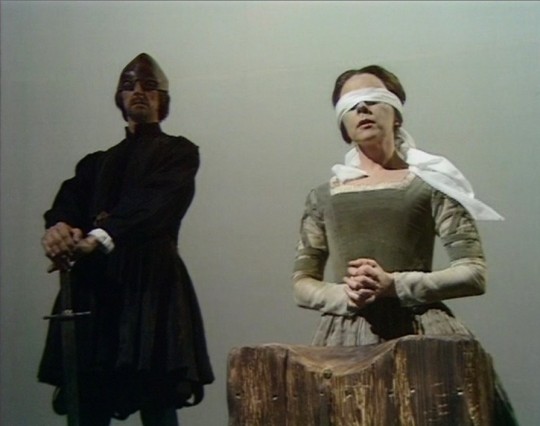
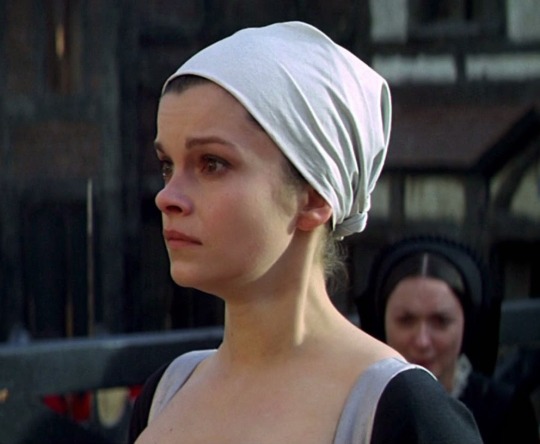
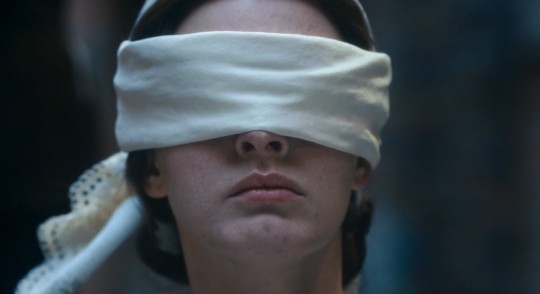
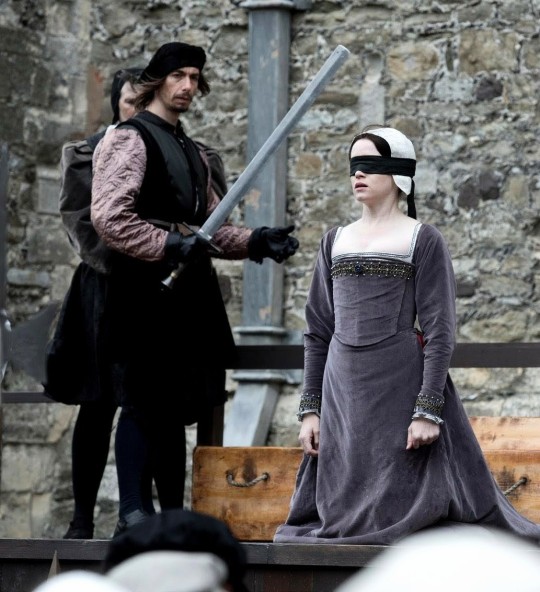
May 19, 1536 - Anne Boleyn is Beheaded
"Good Christian people, I have come here to die. For according to the law, and by the law, I am judged to die and therefore, I will speak nothing against it. I am come hither to accuse no man, nor to speak of that whereof I am accused and condemned to die. But I pray God save the King and send him long to reign over you, for a gentler nor a more merciful prince was there never. And to me he was ever a good, a gentle, and sovereign lord. And if any person will meddle of my cause, I require them to judge the best. And thus I take my leave of the world and of you all, and I heartily desire you all to pray for me. O Lord, have mercy on me. To God, I commend my soul.' And then she knelt down, saying, 'To Christ I commend my soul, Jesu receive my soul', divers times, till that her head was stricken off with the sword.” - Anne's execution, as reported in Hall's Chronicle (1548)
""On a scaffold made there for the said execution, the said Queen Anne said thus: 'Masters, I here humbly submit me to the law, as the law hath judged me. And as for mine offenses, I here accuse no man; God knoweth them. I remit them to God, beseeching him to have mercy on my soul. And I beseech Jesu, save my sovereign and master, the King - the most godly, noble, and gentle prince that is, and long to reign over you.' Which words were spoken with a goodly smiling countenance. And this done, she knelt down on her knees and said: "To Jesu Christ, I commend my soul'. And suddenly, the hangman smote off her head at a stroke with a sword." - Anne's execution, as reported in Wriothesley's Chronicle (1559)
"And so she went to the place of her ordeal
To obey the will of justice,
Still showing a serene countenance,
As if she did not grieve for this world in any way;
For her coloring and face were such
That never before did she seem so beautiful ...
There was no one who does not have firm hope
That her spirit will not be in agony,
Given her great faith and wise patience,
Which rose above womanly courage.
Everyone, on the basis of her mightily steady end,
Judges her life to have been prudent
And believes they have committed a great offense
In having thought so ill of her." - Lancelot de Carle's The Story of the Fall of Anne Boleyn (1536, trans. Joann Dellaneva)
"Anne, the late Queen, suffered with sword this day within the Tower upon a new scaffold and died boldly. Jesu take them [i.e. Anne and the five men] to His mercy if it be His will." - John Husee to Lord Lisle, May 19, 1536
#tudor era#anne boleyn#tudorerasource#dailytudors#perioddramaedit#anneboleynedit#I'm in mourning today tbh#mourning this brave ambitious and incredibly determined woman#tears are actually in my eyes as I write this#RIP Queen Anne#your legacy will live on#and fuck Henry!!!#wanted to supplement the familiar Hall execution speech#with three lesser known sources#especially de Carle since the Dellaneva edition is expensive and print only#the tudors#natalie dormer#the six wives of henry viii 1970#dorothy tutin#anne boleyn 2021#jodie turner smith#anne of the thousand days#genevieve bujold#wolf hall#claire foy#blood sex and royalty#amy james kelly#the private life of henry viii#merle oberon#the other boleyn girl
114 notes
·
View notes
Text
GUYS!! THEY CAME!!!

These amazing Robin and Brook prints are from the wonderful and talented @wigglesdtuff , please check out her stuff (especially to all my Brook lovers out there 💖).
#one piece#Brook#nico robin#rambles#omg yall… I cannot wait to decorate my wall with them#I think Brook would look amazing next to this EAP wall decoration I have#this art is so beautiful I wanna eat it#Might go nuts and order more Soul King#anyways please support the artist they’re wonderful and their art gives me life!!!#especially to all my Robin and Brook fans#sorry to everyone else stumbling upon this I am a rabid Brook stan alongside my fellow Brook-wives (GN).
106 notes
·
View notes
Text
i’m just so devastated, exhausted, and emotionally drained. steve kornacki, thanks for your service. big fuck you to anyone who abstained, voted for trump, or voted third party.
#i wrote and rewrote angrier things in this post#my anger about men ESPECIALLY as a poc thinking abt moc actively voting against their own rights#thinking about how my school is already facing issues from republican senate bills having passed#thinking about how these republicans clearly don’t care about their wives and daughters and sisters#but on the overall i’m just so devastated#i voted for harris and the dem running for senate in a frankly pretty long shot state#and it’s like. i don’t know how people could vote and not know how many people they’re fucking over in the process#was that man talking on your fucking podcast just SO convincing that you decided ‘the economy’ was better with him????#go back to HS econ and get back to me#i’m exhausted. and i can’t even go to bed#us politics#kamala harris#donald trump#election 2024#notes from the prime minister
27 notes
·
View notes
Text
the crane wives make beautiful music for deeply anxious people (me)
#their music soothes some part of my soul that is always afraid of everything#this is especially about#safe ship harbored#keep you safe#arcturus beaming#black hole fantasy#turn out the lights#the crane wives#tcw#the fool in her wedding gown#coyote stories#foxlore#beyond beyond beyond#music#my post
28 notes
·
View notes
Text
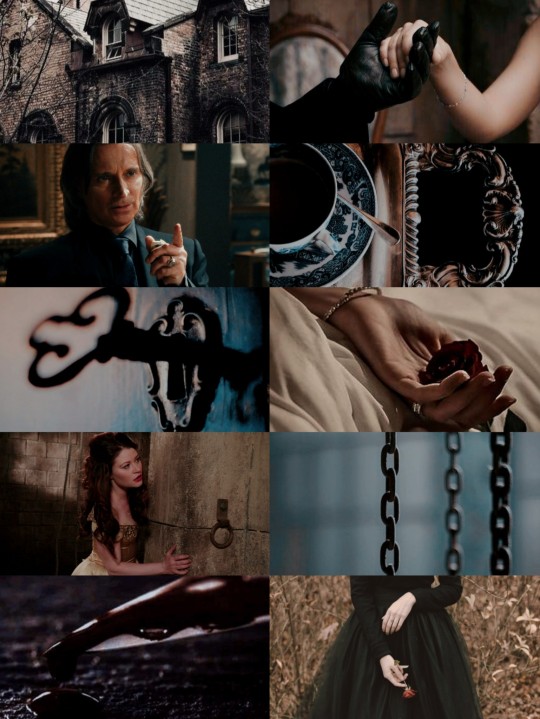
rumbelle + bluebeard au moodboard
#but like without a beard (especially a blue one) lol#this would be dark and gold would not be nice (and very much dead by the end)#probably starting with moe traditionally being indebted to gold#and belle traditionally volunteering to marry gold so that he would forgive moe's debts#and becoming “a caretaker for his rather large estate” both literally and euphemistically🙃#not sure about seven dead wives so let's stop at three#if this is a magical au she might kill him with his dagger and become the dark one#rumbelle#rumbelle moodboard#tw blood#not only mice but also moodboards#rumbelle+fairytales moodboards#my rumbelle things#my things
52 notes
·
View notes
Text
I am thinking abt goomens and gender stuff again bc quite honestly when am I not but I realized most of my very long thoughts could be boiled down into the sentence "Crowley is kind of a clocky broad and everyone hates her for it" so. Crowley is kind of a clocky broad and everyone hates her for it
#i May elaborate but also you should understand this inherently. i say this with absolutely nothing but love in my heart for her of Course#but in general goomer is very very good at revealing a lot of people's like. deeply rooted casual transphobia honestly LMAO#like i don't consider any nonhuman gomens characters to Be Trans in-universe but obviously out-of-universe there's an element#of transness. and the way people treat characters like crowley or beelzebub or muriel reaaaally reveals a Lot. and uh it sucks#people hate nonbinary people and especially hate nonbinary people who heavy quotes 'look male' or whatever. crazy!#open mick night#good omens#gomens#crowley#nanny ashtoreth#ineffable wives#i love clout i love clout. give me attention now
26 notes
·
View notes
Text
I know obviously the plan wasn’t to make Mac gay in the early seasons but every time I watch back I think of Mac with internalized homophobia so bad he has convinced himself he was straight. Mac getting called slurs and bullied so relentlessly that he builds an impenetrable persona, one he won’t even let slip when he’s by himself, terrified once he lets it fall he will be too exhausted to keep it up. Mac getting so tired of spending almost two decades of his life pretending to be someone he isn’t that he gets sloppy, Mac who can’t even get himself to have sex with women anymore. I know it wasn’t the intention but they made one of the most accurate portrayals of internalized homophobia I’ve ever seen in media.
#I wanna make another post about this because#I feel like people think that it’s impossible to interpret early seasons Mac as being gay#and obviously he wasn’t written to be#but like come on do people really think gay men who have wives and children before they came out weren’t convincing??#especially considering Mac wasnt just lying to the people around him he was lying to himself#I simply think there are homosexual explanations for the earlier seasons even if not by choice#I don’t think I explained this very well but you get my point#dennis reynolds#mac mcdonald#dee reynolds#charlie kelly#frank reynolds#iasip#it’s always sunny#it’s always sunny in philly#it’s always sunny in philadelphia#macden#macdennis#iasip mac#iasip dee#iasip dennis#iasip frank#iasip charlie#source: iasip#iasip cast#I’m so sorry these are the ramblings of a mad man
376 notes
·
View notes
Text
Something something the album Coyote Stories by The Crane Wives is about the current objectively horrid state of the world and also a call to action on changing that.
Okay. Starting with “Keep You Safe”. Here, the singer starts out as a young adventuring child who is afraid of joining their friends in slightly dangerous games. They never joined in, too afraid to face the consequences. As they grow up, they get more and more scared of the world as they see more and more slightly dangerous things happening around them. The refrain is a mantra that “Time is not your friend / Time is not your remedy / No amount of waiting will make you, make you brave / No amount of fear will keep you / No amount of fear will keep you safe”. The singer in this song is symbolic of the current state of the world, with so many people afraid of what is to come. The fears keep on piling up, from climate change to war to so many other things, and the people stay afraid, but they never grow any safer by being afraid. Time can and will march on, and, as the song says, “Come what may”.
Going on to “The Moon Will Sing”. The singer speaks of an unfulfilling relationship, with someone or something that keeps on leading them on but never fulfilling their promises. They mindlessly follow the something, and quietly ignored their neglected heart for a time. The chorus is “The moon will sing a song for me / I loved you like the sun / Bore the shadows that you made / With no light of my own”, in which the singer is lamenting their neglected state, but is also speaking of it in the past tense. They’ve moved on now, and are recalling the unhappy past. The singer in this case still represents the state of the world, but of a slightly altered state. They used to be in a bad place, but they’ve changed for the better, reflecting how the world has started to shift for the better. We’ve caught sight of our sorry state and are trying to remedy that.
Next is “Allies or Enemies”. This one is blunt and very personal. The singer immediately references “wildfires and weeds”, as well as an “awful damn disease”, all of which are rather familiar to 21st century Homo sapiens as omnipresent news headlines in the backgrounds and foregrounds of our lives. We are intertwined with these tragedies just as the singer is intertwined with the subject of their song, to the point that neither can conceive of a world without the tragedy or the subject. Anything and everything may or may not happen, as “All is fair in love and war”, but if this dynamic keeps up, it will be “the death of me”.
“Unraveling” is mostly a heaping pile of metaphors and symbolism. The singer is lamenting their lost loves, people who seemed to care for them before disappearing without a word. Though these men were kind and seemed to help, each and every one would eventually disappear and leave the singer worse for wear. Perhaps the best line to be applied to the world’s current state is the one about the carpenter: “Sanded my rough edges, crafted new and lovely things / But now my love is gone / And I can’t help the fracturing”. The carpenter represents the groups and people who have shepherded the world into its current state, keeping the population complacent by plying them with pretty little gifts and things to distract them while profiting all they can. But as soon as the carpenter has gotten what they wanted, they leave the world to its own devices to deal with the consequences of their profiteering. These profiteers are partially the ones at fault for the current state of the world.
“Hard Sell” does, in fact, hit hard. The singer is clearly going through something rough, holding themself together through sheer will to live. They’re trying so hard to get better, but it’s so hard to improve that it seems that they’re “working with barbed wire and moth wings”. To go on a tangent, the decision to specifically say “moth wings” and not bird or fly wings evokes (in my biology-addled brain) the image of salt and pepper moths. These are moths that rapidly evolved to have darker coloration thanks to the sooty, polluted conditions of the Industrial Revolution. The singer is using the only things they have: a metal material designed to harm and keep out and the wings of an animal greatly impacted by human-spurred climate change, and they’re lamenting that it seems that everyone might be going through the same thing. And its true; we’re all facing the same consequences of the state of the world in one form or another, and the only difference is how we present ourselves to the rest of the victims out there. We’re all affected, and we all need to “stop pretending now” and get something done.
Finally made it to “Rockslide”, the song that got me down this track in the first place. It has a runaway rhythm with a singer that speaks of feeling the “wild weather” that’s “got the mountain shaking weak”, and of the “quaking” of “rocks … a’tumblin while the people are asleep”. That wild weather is all the rapid and negative changes rocking the world, or the mountain. And the rocks are the consequences crashing towards the people so ignorant they might as well be asleep. Though the singer prays that they might keep their soul and that “you”, whom they’re singing to, wants to settle down, they also acknowledge that they must run or “the devil we will meet”. The people of the world must run, or make changes, else they’ll face the horrible consequences, or the devil. The devil, or “monster”, is coming and does not care what it hits.
On to “Metaphor”. Oh boy, “Metaphor”. The singer here is someone broken, jaded, the sort of person who’s been hurt ten too many times. They are a liar, a scavenger, a (metaphorical) killer. “You can’t trust a single thing I say”, they sing, because they’ve been lied to and forced to survive in the corners and the margins of the world. They are loud, they are hurt, and by goodness do they not want to go through that again. I really shouldn’t have to say why this is all to real to so many people in this world. They’re the ugly, hard to look at truth of the world, the headline you’re afraid to finish reading, the words just a little too raw to be fake. “I’ve gotten good at making up metaphors”, they sing, because that truth is too hard to bear without at least a little bit of sugarcoating.
Now comes “The Hand That Feeds”. Do I really need to explain this one? “I’ve seen good men spoiled / Chained to their jobs like hounds / They work and sleep, and work again / In the darkest nights they howl”. The people of the world, those who by all measures should not suffer, are chained and bound, deprived of freedom beyond their desperate laments. This is the fate the singer’s father wants his child to avoid, the snare he wishes them to see and remain free of. They sing of how “He taught me that the hand that feeds / Deserves to be bitten when it beats”. No matter how good it looks, you should never take the deal. Never shake the hand of the devil, despite his honeyed words, and remain your own self. That hand only wants to drag you down deeper.
Next is “Little Soldiers”. Okay when I started writing this thing I had just finished All Quiet on the Western Front and so I had a lot of sad war metaphors about this one, but it’s been a while and most of them have vacated my brain in the meantime, so… here goes. “On the broken backs of all the words we spared” they sing, “Like little soldiers in the trenches / It was a march we made towards ruin and despair / but we held hands all the while”. The singer here is recovering from a horrible loss, of the ending of a relationship they thought was good and healthy, but in reality was false to both parties. Both the singer and their former partner are representative of the common suffering of the common people, of their past struggles and strife, and how, in the end, they banded together to fight for each other. The refrain reflects this bittersweet dynamic, switching between “I swear that I loved you” and “I swear that you loved me”. The common love was the only good thing in the lives of the partners, and is all they can look back to in the end.
Following is “Sleeping Giants”, with a return to a feel similar to that of “Rockslide”, as forces beyond mortal comprehension threaten to wake. “I feel the mountains / Shifting under me / The sleeping giants are finally waking”. The singer is hyper aware that they are in danger, and said danger is something so alien, so powerful, and as unexpected as the land itself was shifting beneath their feet. Their pulse is racing, they are in fight-or-flight as all those prophecies from the previous songs in the album begin to come true. “The moon is humming / Lovely melodies / The forest echos, the trees are crowing / Hungry, hungry harmonies”. Natural keystones as far separated as the trees on the Earth and the moon in the sky are calling out in tandem, something is wrong. Something is terribly, horribly wrong.
A rather abrupt tone shift as “Of Everlong” follows. It’s a very short song, barely more than a minute, and its poetry is perhaps the strongest. I’ll just write the whole thing here.
“Out of the ocean / Over the harbor / Lay no sons and / Lay no daughters / Among the mountains of everlong / Twas there I wrote me / A sad, sad song / And if my lover / Will not hear it / Take my voice and / Take my spirit / Leave me weakened / And dig my hole / Only my lover not I can keep my soul / Only my lover not I can keep my soul”.
The singer, a lover much like the one mentioned in “Little Soldiers”, is singing a lament that they are alone, here in the mountains of everlong, beyond all reach of other people. Here they sing of what they have lost, or perhaps never had, a tune that can only echo about those mountains and never reach beyond the ocean. They declare that they’d rather die than never see their beloved again, consigning themself to eternal loneliness rather than risk breaking their heart all over again. Theirs is a song of what was and what will never be, of a world of memories that was long taken by the mists and will never emerge from the horizon with the breaking dawn.
It stays melancholy with “Never Love an Anchor”, with a rocking rhythm like a ship in a calm sea, and a singer who laments that they were never enough for their beloved. They were unable to care for their child, their spark of light impossibly kindled in a life made of sorrow, and feel that it is all their fault. “And I tried to do the best that I could / But try as I might I couldn’t bring myself to hold you”, they cry, a gentle, quiet admittance of defeat. They knew that they could never be enough, and so gave a chance to their beloved in exchange for defying their own selfish desires. This singer acted for the good of the many rather than the good of the few, giving what hope they did have to the little one so that they may rise just a bit higher. “On some level, I think I always understood / That a ship could never really love an anchor”, they sing, an admittance of their own failings, and a declaration that their beloved will be better, will have some brighter future, some breaking dawn at the horizon to look forward to.
The final song of the album is “New Discovery”. It’s a final declaration of the singer’s hope for a brighter future, of some true and real goal that they might strive for. It may not be real, it may be a mirage, but by goodness will they bite and claw and fight for it. “I want to believe / There’s something left for me / A new discovery”. It’s a hope, a faraway paradise, an impossible pipe dream, but it’s something. And to a person at the very end of their rope, to those who might sing of their trials and tribulations and torments and tragedies, something can be everything. It doesn’t need to be grand, or golden, or even great. It just needs to be better. And that is something everyone should be able to get behind.
Hope is famously that thing with feathers, the creature at the bottom of Pandora’s box, the last feeling humanity will ever have. It will drive us on through the deep, dark night, be our guiding lantern in the shadow of the dragon, and when we see the light of the sun shatter over the eastern horizon, we’ll think, yes. One more day. One more day to live and to learn, one more chance at making things better. There will always be nights; times of death and destruction will come again and again for the foreseeable future. But the night is always followed by the day, by hope and a new chance to take another step towards a better future.
Never stop fighting to see that next dawn, to once again behold the sun declaring that a new day has risen.
Never stop working to make things better.
#the crane wives#coyote stories#music#me running my mouth#media analysis#hopepunk#hopecore#optimism#i should think ive earned the right to tag those tags since i desperately tried to make this as uplifting as possible#idk mates i just think humanity could use a bright dawn sometime soon#i managed to drag in sooooooo many bloody metaphors#most of them are from the oh hellos unsurprisingly#especially the whole night is always followed by the day thing featured in their four winds#i will write a thing on through the deep dark valley i swear
26 notes
·
View notes